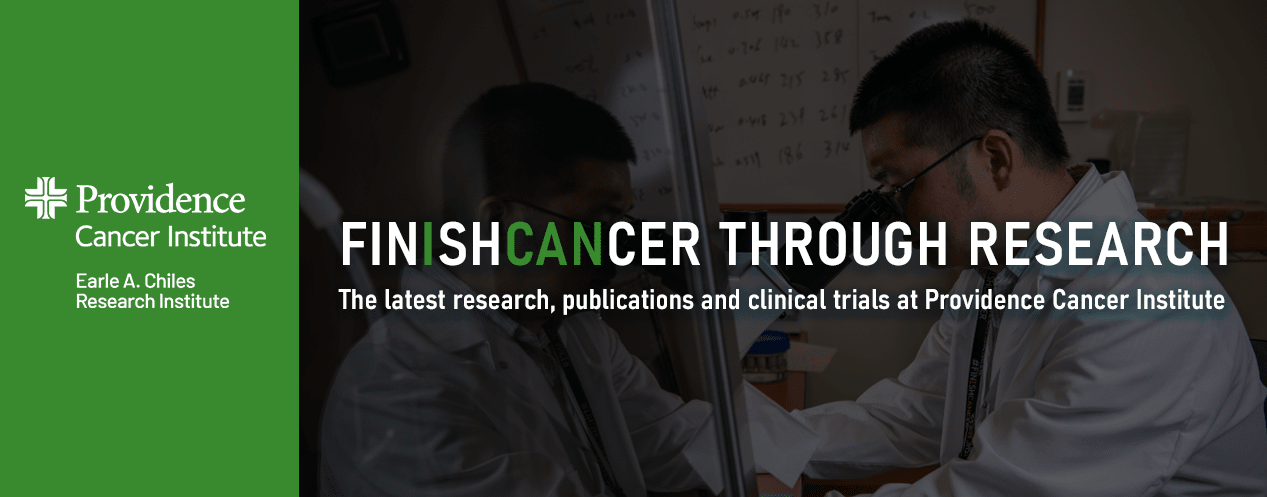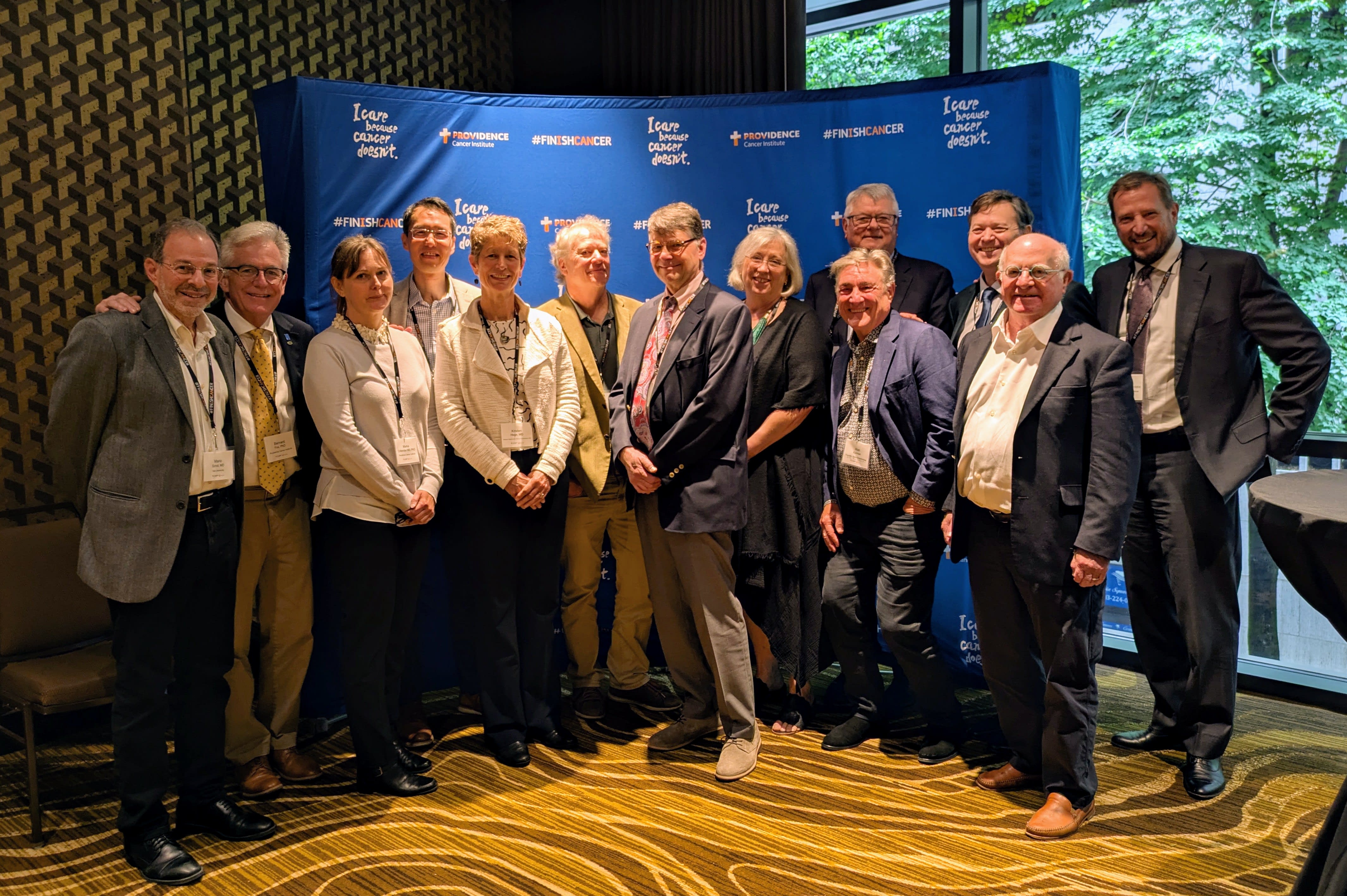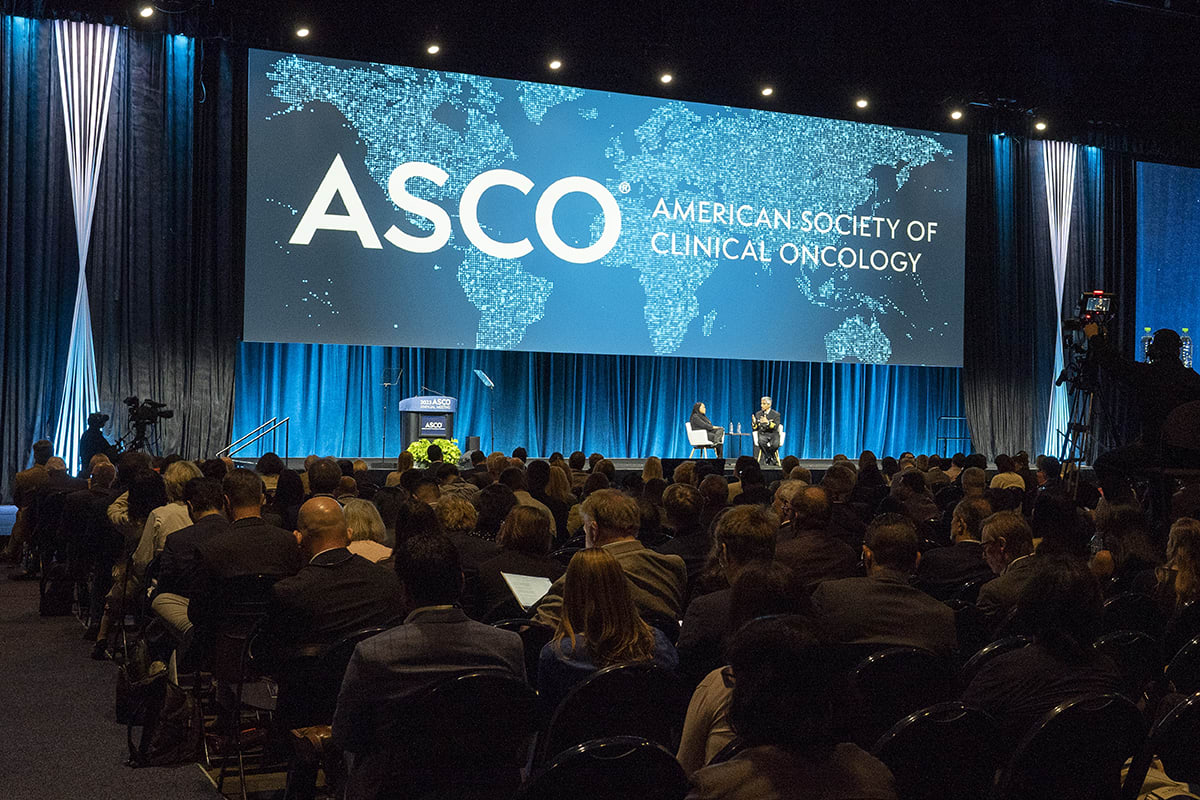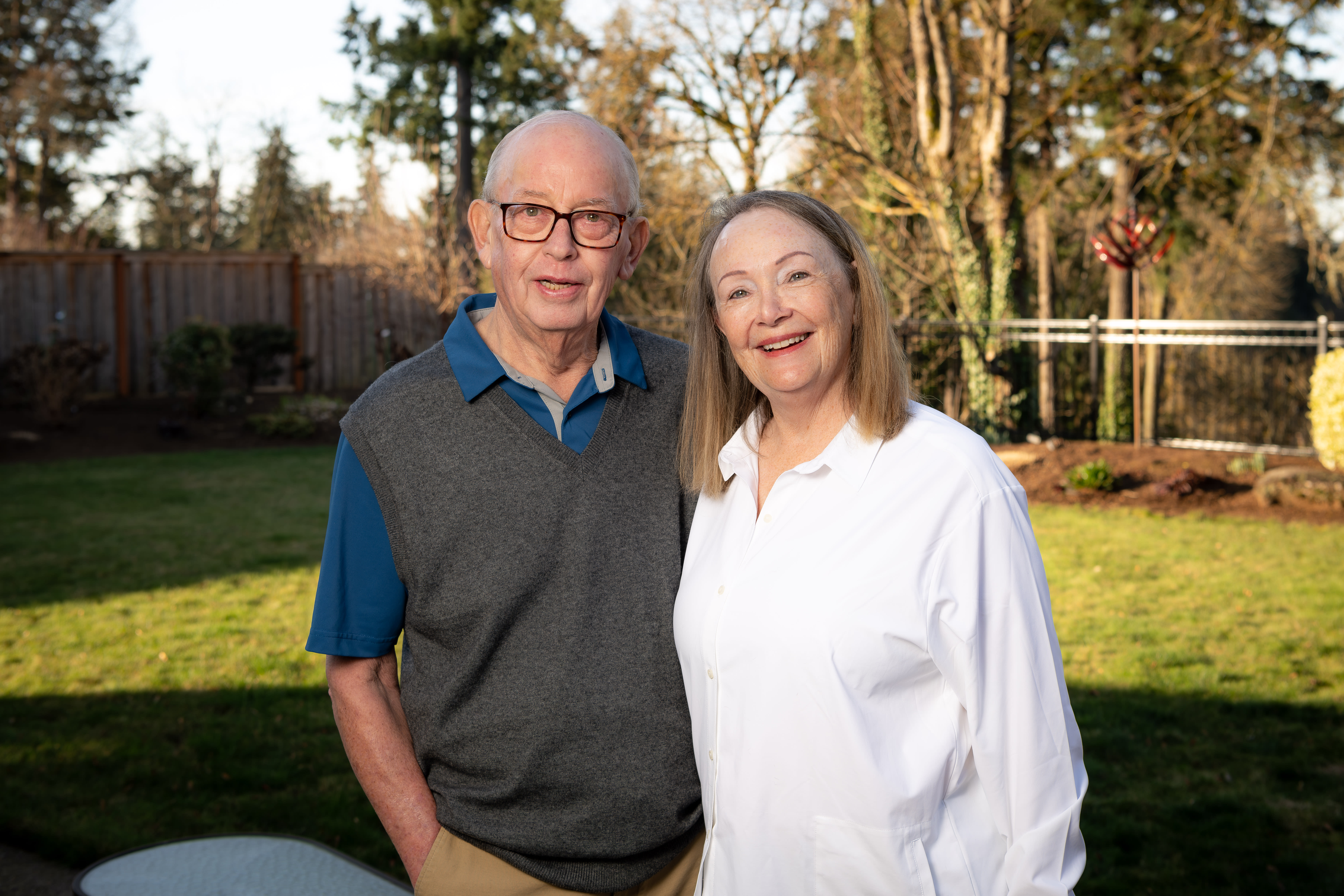Personalized mRNA vaccine and next-gen immunotherapy: Two new cancer trials at Providence

Key Takeaways
- A new trial is open to people with high-risk MIUC, including muscle-invasive bladder cancer or upper tract urothelial cancer.
- The combination of autogene cevumeran, a mRNA-based cancer vaccine, and nivolumab could improve the results of chemotherapy plus surgery for patients with MIUC.
- Autogene cevumeran is made by sequencing the genes in an individual's tumor.
A study enrolling patients at Providence Cancer Institute of Oregon is looking at whether adding a personalized cancer vaccine called autogene cevumeran to nivolumab will help patients with high-risk muscle-invasive urothelial carcinoma (MIUC) stay cancer-free longer than nivolumab alone.
Researchers will look at how safe the combination is and whether it improves overall survival in the long term.
Why this study is important
Urothelial carcinoma (UC), also known as transitional cell carcinoma, is the most common cancer of the urinary system. Most of these cancers start in the bladder. In about one-third of new cases, cancer grows into the muscle wall. This condition is MIUC.
For patients with MIUC, chemotherapy followed by surgery to remove the bladder (radical cystectomy) is the standard of care. Many patients cannot tolerate this aggressive approach because of other health problems like kidney issues or hearing loss. Even with chemotherapy and surgery, MIUC can spread to other sites.
The combination of autogene cevumeran and nivolumab could improve the results of chemotherapy plus surgery, or potentially could be a new option for patients with MIUC who are not able to receive chemotherapy.
mRNA-therapy being evaluated
 Autogene cevumeran is an experimental messenger RNA (mRNA)-based therapeutic cancer vaccine that trains the immune system to recognize and attack specific cancer cells. The vaccine is personalized. It’s made from sequencing the genes in an individual's tumor and using sophisticated computer algorithms to determine which mutations are best recognized by the immune system. That knowledge is used to customize the mRNA vaccine product.
Autogene cevumeran is an experimental messenger RNA (mRNA)-based therapeutic cancer vaccine that trains the immune system to recognize and attack specific cancer cells. The vaccine is personalized. It’s made from sequencing the genes in an individual's tumor and using sophisticated computer algorithms to determine which mutations are best recognized by the immune system. That knowledge is used to customize the mRNA vaccine product.
Researchers believe the vaccine may work well with checkpoint inhibitors, such as nivolumab, to help fight cancer more effectively in patients whose cancer is likely to come back. Making the vaccine takes several weeks, and patients get standard of care chemotherapy while the vaccine is being manufactured.
Nivolumab has shown promise
Nivolumab is an immune checkpoint antibody immunotherapy that has been approved for use after surgery and has helped some patients stay cancer-free longer by “taking the brakes” off the immune response. Nivolumab was approved based on results from the CheckMate 274 trial. In that study, participants who had undergone radical surgery for invasive urothelial cancer showed improvement with nivolumab versus a placebo. More than half of the patients treated with nivolumab had cancer return within two years. This shows there’s still a need for more effective treatments.
Two-arm randomized study
A tumor specimen from TURBT (transurethral resection of bladder tumor) will be sent to the lab for potential vaccine manufacture. As noted above, patients will receive chemotherapy if medically appropriate before surgery to remove the bladder. Participants will then be randomly assigned to either the autogene cevumeran plus nivolumab arm or the placebo (saline) plus nivolumab arm. The reason for the placebo is because benefit for the mRNA vaccine has not been proven, but all patients will get nivolumab, which does improve outcomes.
Researchers will closely monitor both groups to see which treatment works better and is safer in preventing the cancer from coming back.
The study is open to people who have high-risk MIUC (including muscle-invasive bladder cancer or upper tract urothelial cancer), should enter screening before TURBT and:
- Currently show no evidence of disease, but are at high risk of the cancer returning
- Are not receiving chemotherapy after surgery
Providence Cancer Institute is currently enrolling patients. The principal investigator is Brendan Curti, M.D., medical oncologist at Providence Cancer Institute and a Robert W. Franz Endowed Chair of Clinical Research at Earle A. Chiles Research Institute, a division of Providence Cancer Institute.
Find out more about the study here:
A Study to Evaluate the Efficacy and Safety of Autogene Cevumeran With Nivolumab Versus Nivolumab Alone in Participants With High-Risk Muscle-Invasive Urothelial Carcinoma
To refer a patient:
- Call 503-215-1979
- Send an email
Phase I study of ANK-101 in advanced solid tumors

Key Takeaways
- ANK-101, an investigational immunotherapy, is being studied as a possible treatment for certain types of cancer.
- ANK-101 is similar to an immune substance made in the human body called Interleukin-12 (IL-12).
- Providence Cancer Institute is one of only four sites in the U.S. enrolling patients in the ANK-101 trial.
Researchers are studying a new investigational immunotherapy called tolododekin alfa, or ANK-101, to see if it is safe and effective in individuals with advanced solid tumors. This early-phase (Phase I), first-in-human study is being conducted at four sites in the United States and one site in Canada.
The main goals of this study are to:
- Find the safest dose of ANK-101 (the recommended dose for expansion, or RDE)
- Understand how the drug behaves in the body
- Observe any effects it may have on tumors
- Determine if combining ANK-101 with cemiplimab is safe
Individuals who participate in this study may help researchers better understand ANK-101 and how it might be used in the future to treat cancer.
Providence Cancer Institute in Portland, Oregon, is currently enrolling adults with cancer that has gotten worse or spread, even after receiving standard treatments. Brendan Curti, M.D., is the principal investigator.
ANK-101 explained
ANK-101 is being studied as a possible treatment for certain types of cancer. It is designed to be injected directly into tumors (called an intratumoral or IT injection). The drug works by creating a strong, targeted immune response at the site of the tumor. This may also help the body fight cancer in other parts of the body.
ANK-101 is similar to an immune substance made in the human body called Interleukin-12 (IL-12). IL-12 is important in orchestrating anti-tumor immune responses and has been given to patients intravenously (directly into the vein). Although anti-tumor responses were seen, there were also side effects from the intravenous IL-12. ANK-101 has been engineered to have fewer side effects, but with equal power to promote and immune response.
This study will also look at whether ANK-101 can work with cemiplimab, which is already approved to treat certain types of skin and lung cancer. Cemiplimab also is an immunotherapy drug.
Three study parts
Part 1: ANK-101 is given alone in study participants with advanced tumors that are close to the surface of the skin or lymph nodes (where tumors can be felt or seen on scans). The goal is to test different doses and find the right balance between safety and effectiveness. Small groups of participants will be treated at increasing dose levels. Once a tolerable dose is identified that has immune effects, an additional group of participants will be treated to gather more safety information.
Part 2: ANK-101 is given alone in participants with deeper tumors inside the body, which can be injected with imaging-guided tools like endoscopy or CT scanning. This part follows a similar approach to Part 1, using gradually increasing doses. Once the best dose is found, another group of participants with non-small cell lung cancer (NSCLC) will be treated.
Part 3: ANK-101 is combined with cemiplimab in 15 participants who have a high-risk type of skin cancer called cutaneous squamous cell carcinoma (CSCC). These participants must have tumors that can be injected. They will receive ANK-101 every three weeks, along with cemiplimab given by IV. Participants will be monitored closely for side effects, and their response to the treatment will be tracked with imaging every 12 weeks. Some participants may be able to continue cemiplimab alone after stopping ANK-101, if their cancer shrinks or remains stable.
Safety and monitoring
In all three parts, participants will go through a screening period (up to 28 days) to confirm eligibility. The treatment period may last up to six months, with additional follow-up afterward to monitor safety. The study includes safety “checkpoints” where experts review data to make decisions about dose changes or enrollment.
Thus far, some patients have had shrinkage of injected tumors and tumors that were not injected (so-called abscopal effect). Laboratory studies are shedding light on these anti-tumor immune responses and scientists at Providence Cancer Institute are working with the study sponsor (Ankyra) to perform state-of-the-art immune monitoring to better understand the mechanisms for ANK-101 response.
There is more to learn about this study. Get the details here:
To refer a patient:
- Call 503-215-1979
- Send an email
New research studies are added frequently. See all clinical trials at Providence Cancer Institute.
Related news
Clinical trials matter, just ask Randy
Studies to be presented by Providence researchers at AACR annual meeting
Seeking better treatments for people with ER+/HER- breast cancer



